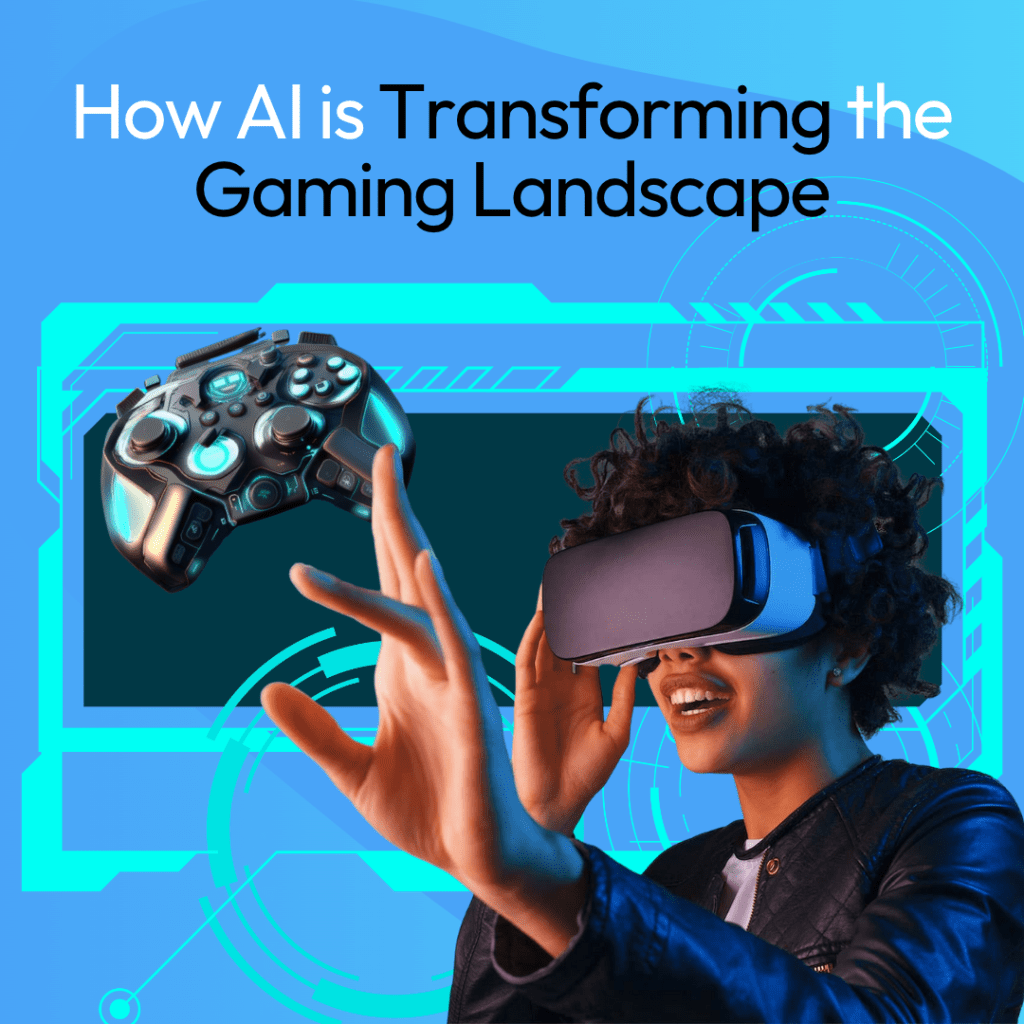Artificial intelligence (AI) is transforming the world in many ways, and the video game industry is no exception. With the development of more sophisticated AI systems, video games are becoming more immersive and challenging, offering players an experience that is closer to real life. In this article, we’ll explore some of the ways that AI is changing the landscape of the video game world.
Smarter Enemies
One of the most obvious ways that AI is changing video games is by making enemies and non-playable characters (NPCs) smarter. In the past, enemies in video games were often predictable and followed set patterns. However, with the development of AI, enemies can now adapt to the player’s actions, making the game more challenging and unpredictable. For example, in the game Alien: Isolation, the player must evade an alien that learns from the player’s behavior and adapts to their tactics, making it more difficult to escape.
Dynamic Environments
AI is also being used to create dynamic environments that can change in response to the player’s actions. This allows for a more immersive experience and makes the game world feel more alive. For example, in the game Middle-earth: Shadow of War, the AI system creates a dynamic world where NPCs have their own agendas and can form alliances or enemies based on the player’s actions.
Personalized Gameplay
AI is also being used to create personalized gameplay experiences for individual players. By analyzing player behavior and preferences, AI can create a customized experience that is tailored to each player’s strengths and weaknesses. For example, in the game Forza Motorsport 7, AI creates personalized drivatars for each player, which are virtual representations of their driving style. The drivatars then race against other players, creating a personalized and challenging experience.

Natural Language Processing
Natural language processing (NLP) is a subfield of AI that allows machines to understand and respond to human language. This technology is being used in video games to create more immersive and interactive experiences. For example, in the game Lifeline, players communicate with a stranded astronaut via text messages, using natural language to guide them through the game. The AI system behind the game responds in real-time to the player’s messages, creating a unique and immersive experience.
Procedural Generation
Procedural generation is a technique used in video game development where the game world is created by an algorithm rather than manually by developers. This allows for the creation of infinite game worlds that are unique to each player. AI is used to create procedural generation systems that can generate game worlds that are both beautiful and functional. For example, in the game No Man’s Sky, AI is used to generate a vast, procedurally generated universe with billions of unique planets to explore.
Improved Game Design
AI is also being used to improve game design. By analyzing player behavior and preferences, AI can help developers create games that are more engaging and enjoyable for players. For example, in the game Destiny, AI is used to analyze player behavior and provide feedback to developers on how to improve the game’s design.
Monitor your child’s gaming communication with ProtectMe
Adaptive Difficulty
Adaptive difficulty is a technique used in video game development that adjusts the game’s difficulty level in real-time based on the player’s skill level. AI is used to analyze player behavior and adjust the game’s difficulty level accordingly. This creates a more personalized experience for each player, making the game more challenging for experienced players and more accessible for beginners. For example, in the game Left 4 Dead, AI is used to adjust the difficulty level of the game based on the player’s skill level and performance.
Artificial intelligence is transforming the video game industry in many ways. From creating smarter enemies and dynamic environments to providing personalized gameplay experiences and improving game design, AI is changing the way that players interact with video games. As AI technology continues to improve, we can expect even more innovative and immersive experiences in the future.
As parents, it’s important to stay informed about the latest developments in the video game industry and to monitor our children’s gaming habits. While video games can be a fun and educational form of entertainment, it’s important to make sure that our children are playing games that are appropriate for their age and skill level. By staying involved in our children’s gaming habits and setting limits on screen time, we can help ensure that they have a safe and enjoyable gaming experience.
In conclusion, AI is transforming the video game industry in many ways, from creating smarter enemies and dynamic environments to providing personalized gameplay experiences and improving game design. While there are concerns about the use of AI in video games, it’s clear that the technology is changing the way that players interact with games and offering new and exciting experiences. As parents, it’s important to stay informed about the latest developments in the video game industry and to monitor our children’s gaming habits to ensure that they have a safe and enjoyable experience.